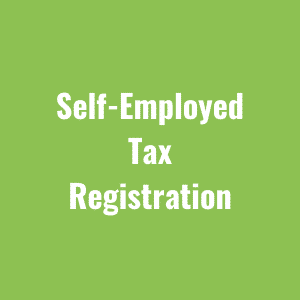I am not much of a list-writer, but I do believe there is a benefit to gathering information together in the same space for specific topics.
When I first decided to move to Germany, I found myself searching multiple sites as I tried to gather the required information I needed; sometimes I was successful in finding a list or an instructional “to-do” type document, but most often, I found myself having to write my own lists. I thought I would compile a list or two here in this blog to assist my readers, thinking that these lists might be helpful to someone else; so here it is: the top ten things to do when moving to Germany.
10 Must-Do's When Moving to Germany
VISA [if applicable]
I wrote an entire blog post (and more) on this subject so all I will say here is to have a valid visa that allows you to be in the country for a space of time (3 months, 6 months, 2 years… whatever-just have a visa).
More details about German visas here and here.
If you want to apply for the EU Blue Card, you can find more details here.
If you want to apply for the EU Blue Card, you can find more details here.
FLAT/PLACE TO LIVE
This is another one that I have already written about extensively in full blog posts. Whether you use a sublet for your first few months, or an Airbnb, hostel, WG or you found your own flat, you need a space to live that will allow you to legally register at that address.
ANMELDUNG
There’s a full blog post on this item: suffice it to say, you need to register (Anmeldung) within two weeks of moving to your new address (this time frame is listed on the government site so I am repeating it here). At the end of that process, you will get the so-called Meldebescheinigung (proof of registration); this is a required certificate/piece of paper that you need in order to get a residence permit, tax ID, health insurance, bank account, and many other vital things to establishing a life in Germany.
Once you are registered, you will receive by post, within 2 to 3 weeks, a tax ID called Identifikationsnummer. Everyone living in Germany is required to have one. Don't confuse that number with the Steuernummer (tax number) which is only required if you want to become a freelancer or run your own business.
Read here how to get a Steuernummer and become a freelancer. If you need more details about the Anmeldung, read this article. Here you will get more info about the tax ID.
If you want to get a tax number and a VAT number to work as a freelancer in Germany, you can use this free service. All the process is online and in English.
If you need more details on how to become a freelancer, you can follow these 7 steps in this article.
BANK ACCOUNT
Once you’ve registered, you need to get a bank account; I wrote an entire article on this and am stating that you need the Anmeldung in order to get a normal checking account (You do NOT need to be registered to open a bank account with N26; I opened myself an account with them as they accept freelancers. Check out their different plans here).
Read this article about the various banking possibilities you have.
SIM CARD
I compared the different SIMs on offer and the different plans available in this article; whichever service you decide to use, you will need to be registered and have your ID/passport validated in order to get the SIM turned on so you can use it.
HEALTH INSURANCE
In order to live in Germany, you must have health insurance. This is German law!
In Germany, there is public health insurance, private health insurance and expat health insurance; there are lots of pros and cons for each.
Basically, you must opt for public health insurance if you are employed and earn less than 64,350€ per year. On the other hand, you are allowed to opt for private health insurance if you earn more than 64,350€ per year or are a freelancer.
If you are self-employed, or currently looking for a job, and have just moved to Germany from a non-EU country, then you should sign up for expat health insurance (limited to 5 years - not valid for residence permit extension). Once you have a steady income, you can easily cancel and switch to public or private health insurance. The most popular expat health insurance provider in Germany is Feather.
If you need more details about the health insurance system in Germany, you can read this complete guide.
AUSLÄNDERBEHÖRDE [if applicable]
This is German for “foreigners office”. You will find an in-depth article on the LABO and what documents you need for this appointment here, but one small step you need to take when you first arrive in Germany is to make an appointment for your residence permit.
Make that appointment within your tourist visa time; by this I mean just book the appointment even if it is months and months away so you can remain in the country with an “extension” as long as you have a booked appointment.
LEARN GERMAN
Find/Pick a German Language School: Do some research and determine which language class works for you and your schedule; there is a separate article you can read here regarding the differences in some of the most popular programs around Berlin specifically (many of those schools offer online lessons!). You need to determine which one offers class times that work for you, or which one uses a learning program that works for you.
If you want to learn German online, you can use this website.
OTHER INSURANCES
I am including this step because it is an important one. You need to be aware that Germans are fans of insurances and you need to get some coverage for yourself. As a renter, pet owner, driver, etc… living in Germany means that you will have multiple liability insurances so get researching.
If you want to protect your personal belongings, you will need to buy household insurance.
If you want to protect yourself and your family in the event that you are held responsible for bodily injury or property damage to a third party, then you will have to get personal liability insurance (often mandatory for renting an apartment).
If you own a dog, you can buy dog liability insurance (mandatory for renting an apartment) and pet health insurance. By German law, it is mandatory to have dog liability insurance in Berlin, Hamburg, Niedersachsen, Sachsen-Anhalt and Schleswig-Holstein. In other states, it will depend on the dog breed.
You can read this article for more details.
NEIGHBORHOOD
Exploring your neighborhood: this serves a few purposes- regardless of the length of time you’ll be in that specific neighborhood, you need to learn the closest public transport stops, the closest grocery shops, the closest bank/ATMs, doctor’s offices, schools, daycare, cafes, furniture stores, etc. etc.
This also serves the purpose of you learning whether or not you like this part of town. If you don’t, you know you need to explore further afield to get an idea of where you might want to live long term.
Take public transport and get lost. Find your favorite restaurants and cafes and just enjoy this amazing city you are now a resident of. Enjoy!
Tres C is an American who’s lived and worked all over the world and who has traveled extensively. She moved to Berlin in July 2017 with her dogs; she’s excited to share her hard-earned knowledge about relocating to Berlin through her writing on this blog.


































0 Comments